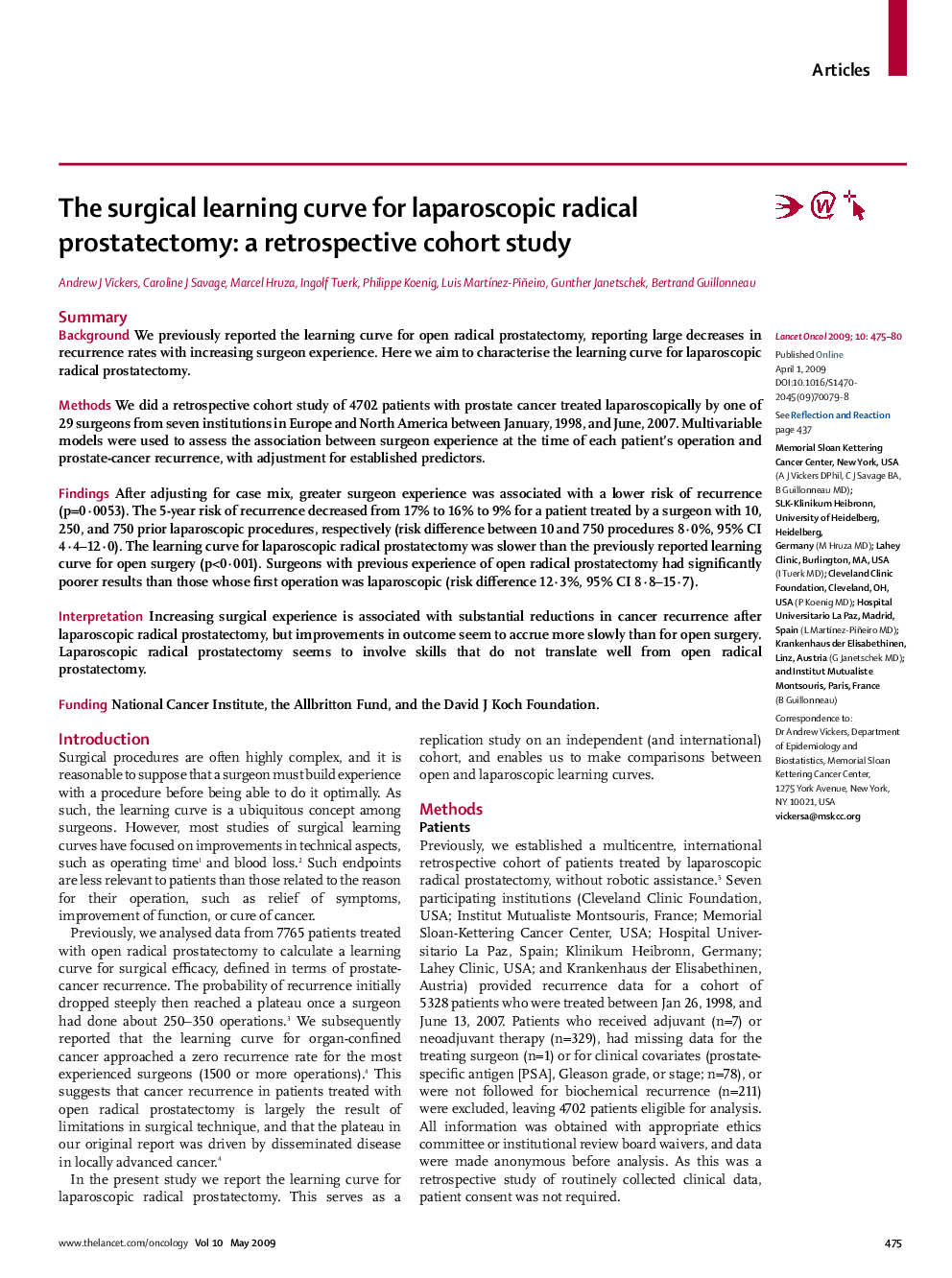| Article ID | Journal | Published Year | Pages | File Type |
|---|---|---|---|---|
| 3994617 | The Lancet Oncology | 2009 | 6 Pages |
SummaryBackgroundWe previously reported the learning curve for open radical prostatectomy, reporting large decreases in recurrence rates with increasing surgeon experience. Here we aim to characterise the learning curve for laparoscopic radical prostatectomy.MethodsWe did a retrospective cohort study of 4702 patients with prostate cancer treated laparoscopically by one of 29 surgeons from seven institutions in Europe and North America between January, 1998, and June, 2007. Multivariable models were used to assess the association between surgeon experience at the time of each patient's operation and prostate-cancer recurrence, with adjustment for established predictors.FindingsAfter adjusting for case mix, greater surgeon experience was associated with a lower risk of recurrence (p=0·0053). The 5-year risk of recurrence decreased from 17% to 16% to 9% for a patient treated by a surgeon with 10, 250, and 750 prior laparoscopic procedures, respectively (risk difference between 10 and 750 procedures 8·0%, 95% CI 4·4–12·0). The learning curve for laparoscopic radical prostatectomy was slower than the previously reported learning curve for open surgery (p<0·001). Surgeons with previous experience of open radical prostatectomy had significantly poorer results than those whose first operation was laparoscopic (risk difference 12·3%, 95% CI 8·8–15·7).InterpretationIncreasing surgical experience is associated with substantial reductions in cancer recurrence after laparoscopic radical prostatectomy, but improvements in outcome seem to accrue more slowly than for open surgery. Laparoscopic radical prostatectomy seems to involve skills that do not translate well from open radical prostatectomy.FundingNational Cancer Institute, the Allbritton Fund, and the David J Koch Foundation.
